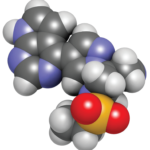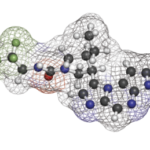In cancer, the JAK-STAT pathway is often dysregulated, contributing to tumor growth, immune evasion and resistance to immune checkpoint inhibitors. JAK inhibitors can suppress tumor-promoting inflammation and cytokine signaling, potentially reducing tumor progression and overcoming resistance to immunotherapies, such as PD-1/PD-L1 inhibitors.7 Dr. Lauper noted that much work has been—and will be—done to further explore the potential relationship between JAK inhibitors and incident malignancy.
Dr. Lauper helped author a 2024 article discussing key considerations for the initiation of targeted therapies in patients with inflammatory arthritis and a history of cancer. In the article, they note that these deliberations require careful, individualized risk-benefit analysis, with particular caution paid to JAK inhibitors and abatacept due to limited safety data in this population.8
Infection
David Liew, MBBS, FRACP, lead for the Medicines Optimization Service, Austin Hospital, Melbourne, Australia delivered the session’s final talk, which dealt with JAK inhibitors and infection risk. He left the audience with specific items to think about when selecting a biologic or conventional synthetic disease-modifying antirheumatic drug (DMARD):
- Refrain from avoiding treatments due to fear of infection if doing so will increase disease activity and glucocorticoid use—both of which are associated with increased risk of infection;
- Consider if the patient has a specific history or elevated risk of herpes zoster and/or tuberculosis;
- Be mindful of the increased risk of infection in older adults treated with JAK inhibitors; and
- Make sure vaccinations are provided to patients before starting treatment.
Jason Liebowitz, MD, FACR, is an assistant professor of medicine in the Division of Rheumatology at Columbia University Vagelos College of Physicians and Surgeons, New York.
References
- Tanaka Y, Luo Y, O’Shea JJ, et al. Janus kinase-targeting therapies in rheumatology: A mechanisms-based approach. Nat Rev Rheumatol. 2022 Mar;18(3):133–145.
- Konzett V, Smolen JS, Nash P, et al. Efficacy of Janus kinase inhibitors in immune-mediated inflammatory diseases a systematic literature review informing the 2024 update of an international consensus statement. Ann Rheum Dis. 2025 May;84(5):680–696.
- Blockmans D, Penn SK, Setty AR, et al. A phase 3 trial of upadacitinib for giant cell arteritis. N Engl J Med. 2025 May 29;392(20):2013–2024.
- Rinvoq (upadacitinib) receives U.S. FDA approval for giant cell arteritis (GCA) [news release]. AbbVie Inc. 2025 Apr 29.
- Banjari M, Touma Z, Gladman DD. Improving measures of disease activity in systemic lupus erythematosus. Expert Rev Clin Immunol. 2023 Feb;19(2):193–202.
- Ytterberg SR, Bhatt DL, Mikuls TR, et al. Cardiovascular and cancer risk with tofacitinib in rheumatoid arthritis. N Engl J Med. 2022 Jan 27;386(4):316–326.
- Wei XH, Liu YY. Potential applications of JAK inhibitors, clinically approved drugs against autoimmune diseases, in cancer therapy. Front Pharmacol. 2024 Jan 3;14:1326281.
- Sebbag E, Lauper K, Molina-Collada J, et al. 2024 EULAR points to consider on the initiation of targeted therapies in patients with inflammatory arthritis and a history of cancer. Ann Rheum Dis. 2024 Dec 20:ard-2024-225982.



